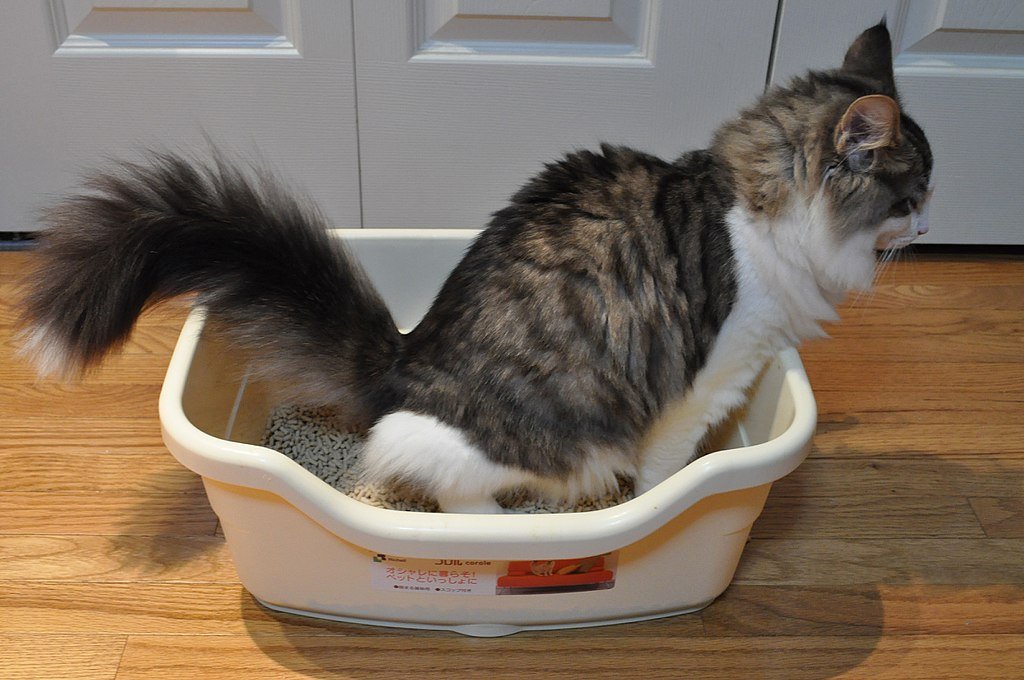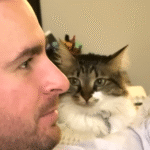Have you ever noticed your cat waiting by its food bowl, eyes wide and tail twitching, as if it could sense the time down to the minute? There’s something almost magical about the way cats anticipate their meals. But what really happens if you feed your cat at the same time every single day? It might sound simple, even boring, but the truth is a regular feeding schedule can completely transform your feline’s life—and yours. Dive in with me as we uncover the fascinating effects of this daily ritual, from happier moods to healthier bodies and everything in between.
Building a Stable Routine for Your Cat

Cats, much like people, thrive on routine. When you feed your cat at the same time daily, you’re not just filling their stomach—you’re giving them a sense of security. Predictability helps lower their anxiety levels because they know exactly when to expect their next meal. This stability is especially comforting for rescue cats or those who’ve experienced trauma in the past. Imagine the relief of knowing that, no matter what, food arrives right on cue. This consistency can make your home feel like a safe haven and reduce stress-related behaviors, such as scratching or yowling. Cats might not wear watches, but their internal clocks are impressively sharp. By sticking to a schedule, you tap into their natural instincts and help them feel truly at home.
Promoting Healthy Digestion

Just as breakfast, lunch, and dinner help regulate our digestion, regular feeding times can work wonders for your cat’s tummy. Cats’ bodies quickly learn when food is coming, so their digestive systems prepare by producing stomach acids at the right times. This can help reduce vomiting, indigestion, or even constipation. On the flip side, erratic feeding schedules can confuse their bodies, leading to stomach upset or irregular bowel movements. Consistent meal timing also means you’re less likely to overfeed or underfeed, as you know exactly when and how much your cat should eat. It’s like setting your pet’s digestive system to a rhythm that keeps everything moving smoothly.
Regulating Your Cat’s Weight

Obesity is a growing problem among house cats, but a set feeding schedule can be a powerful tool in the battle of the bulge. When you feed at the same times and measure portions, you avoid the pitfalls of “free feeding”—where cats can graze all day and pack on pounds. Scheduled meals help you monitor exactly how much your cat is eating and make adjustments as needed. It’s much easier to spot if they’re losing or gaining weight too quickly. Plus, cats are less likely to beg or overeat when they know food arrives at specific times. Think of it as portion control, but with the added bonus of happier, healthier cats.
Strengthening the Human-Cat Bond

Feeding time isn’t just about nutrition—it’s also a chance to connect. When you reliably appear with a tasty meal, you become the hero in your cat’s daily story. Over time, this ritual builds trust and affection. Your cat may greet you with purrs, rub against your legs, or even “talk” in adorable meows when mealtime nears. These moments can become the highlight of your day, deepening your relationship. It’s a simple act, but the consistency of it makes your cat feel cherished and understood. Even on tough days, those shared routines remind you both that you’re part of each other’s world.
Reducing Problem Behaviors

A hungry and confused cat can quickly turn into a mischievous one. Without a predictable feeding schedule, cats might act out—scratching furniture, knocking things over, or waking you up at dawn with desperate meows. Scheduled meals can curb these behaviors by giving your cat something to look forward to. When a cat knows food is on the way, they’re less likely to resort to attention-seeking antics. It’s a bit like toddlers who misbehave when they’re overtired or hungry; structure helps everyone stay on track. With regularity, your home is quieter, calmer, and much less chaotic.
Supporting Medical Health and Medication Timing

For cats with medical conditions, timing can be everything. Many medications work best when taken with food, and some even need to be given at precise intervals. Feeding at the same time daily makes it much easier to stick to your cat’s treatment plan. This is especially important for conditions like diabetes, where insulin needs to be coordinated with meals. Regular routines can also help you notice changes in appetite—a key early sign of illness. If your cat suddenly skips a meal, you’ll spot it right away and can act fast. Consistency here could make all the difference in keeping your cat healthy.
Helping Multi-Cat Households

If you have more than one cat, you know how chaotic mealtimes can be. Cats are territorial creatures, and a fixed feeding schedule helps prevent squabbles. Each cat learns when and where it gets fed, reducing food aggression and stress. Scheduled meals also make it easier to ensure everyone gets their fair share—no more sneaky stealing from a slower sibling. This brings harmony to your furry family and cuts down on the drama. It’s a bit like setting up a family dinner: everyone knows their place, and peace reigns at the table.
Stabilizing Your Cat’s Mood

Ever get “hangry”? So do cats! Unpredictable meal times can lead to irritable or anxious behavior. Regular feeding helps stabilize your cat’s mood by keeping blood sugar levels steady. A well-fed cat is a happy cat—less prone to mood swings, aggression, or nervous pacing. Over time, you might notice your cat becoming more playful and relaxed, simply because they feel safe and satisfied. It’s a small change with a surprisingly big emotional payoff for both you and your furry friend.
Establishing an Internal Clock

Cats are natural timekeepers. Their bodies sync up with daylight, darkness, and—most importantly—when food arrives. By feeding your cat at the same hour every day, you help set their internal clock. This can influence everything from when they feel sleepy to when they’re most active. Some owners even find their cats adjust to household rhythms, waking up or winding down when you do. It’s like tuning your cat’s daily life to match your own—a helpful trick if you want a peaceful night’s sleep!
Detecting Health Issues Early

Cats are masters at hiding illness, but a strict feeding schedule can give you an edge. If your cat suddenly stops showing up for a meal or eats less, it could be one of the first signs something’s wrong. Skipping a meal or losing interest in food isn’t normal for a healthy cat on a routine. Catching these changes quickly means you can get veterinary help sooner, sometimes before symptoms become serious. It’s a subtle but powerful way to safeguard your pet’s health.
Preventing Overeating and Food-Related Stress

Some cats will eat everything in sight if given the chance, while others stress out if they think food might run out. Scheduled mealtimes help both types. By offering controlled portions at predictable times, you take away the anxiety of not knowing when the next meal is coming. Cats learn to eat what’s provided, rather than scarfing down food in a panic or overeating out of boredom. This simple structure can lead to more relaxed, satisfied pets—and fewer worries about weight gain or food fights.
Encouraging Exercise and Play

Scheduled feeding naturally creates “windows” between meals when cats are more active and alert. Many cats will run, jump, or play to burn energy before or after eating. You can use this to your advantage by planning playtime around meals. For example, try dangling a feather toy or tossing a ball before breakfast or dinner. This mimics the hunt-eat-rest cycle of wild cats, giving your pet a chance to exercise, solve problems, and enjoy life indoors. It’s a fun, easy way to keep your cat agile and entertained.
Making Travel and Boarding Easier

If you ever need to leave your cat in someone else’s care or board them at a kennel, a predictable feeding schedule makes the transition smoother. Caregivers can simply follow your routine, which helps your cat feel less stressed in a new environment. Cats who are used to scheduled meals adapt more easily to temporary changes, knowing that food will arrive as expected. This can make vacations or emergencies less traumatic for both you and your pet. It’s a little preparation that pays off big when life throws you a curveball.
Improving Litter Box Habits

Believe it or not, feeding your cat at regular times can even improve litter box habits. With consistent meals, your cat’s digestive system follows a rhythm, making bathroom trips more predictable. This helps you spot any changes in elimination quickly, which is vital for catching urinary or digestive problems early. Regular feeding also means fewer accidents outside the box, as your cat knows when to expect food—and when nature will call. A tidy, well-used litter box is a win for everyone in the house.
Decreasing Food-Related Anxiety

Some cats develop anxiety around food, especially if they’ve experienced hunger or competition in the past. A set feeding schedule reassures them that food will always arrive, reducing panic or aggression. Over time, anxious cats become more confident and relaxed, even around other pets. This can transform mealtimes from stressful stand-offs into calm, happy rituals. It’s an invisible gift: every meal delivered on time is another reminder that your cat is safe and cared for.
Supporting Senior Cats and Special Needs

Older cats and those with special needs benefit even more from routine. Seniors may have slower digestion or need medication, making regular meals essential. A predictable schedule helps you monitor their appetite and make sure they’re eating enough, especially if their senses are fading. For cats with conditions like kidney disease or diabetes, timing meals is crucial to managing symptoms and medications. It’s a simple act of love that ensures your aging companion enjoys the best quality of life possible.
Fostering Good Eating Habits in Kittens

Kittens are bundles of energy, and their eating habits set the stage for a lifetime of health. Establishing a regular feeding routine teaches them that food comes at certain times, preventing picky eating and overeating later on. It also helps with house training, as their bathroom schedule becomes more predictable. Early structure makes kittens feel secure and helps them grow into confident, well-adjusted adults. Think of it as setting the foundation for a lifetime of good kitty manners.
Adding Joy and Anticipation to Daily Life

There’s something delightful about the way cats anticipate their meals. The little dances, excited chirps, and gentle head bumps all become part of the daily show. Feeding at the same time every day turns mealtime into an event—something both you and your cat can look forward to. It’s a shared ritual that brings joy and comfort, even on the busiest days. In a world full of chaos, those simple moments of connection can be more nourishing than the food itself.

Growing up traveling and experiencing new cultures and wonders, I have had a passion for nature, adventuring, photography, and videography. I am currently working towards a BSc in Biodiversity and Ecology at Stellenbosch University, and I hope to specialise in Marine Sciences one day.
Please send any feedback to Feedback@animalsaroundtheglobe.com






